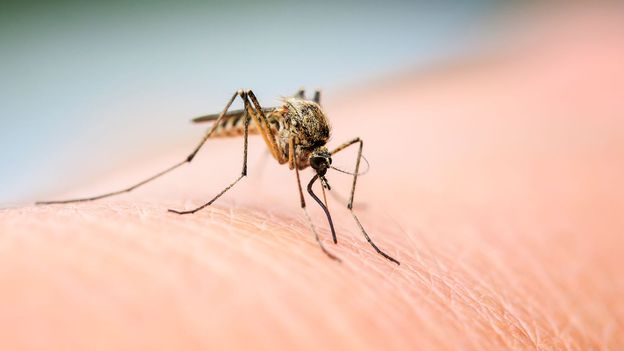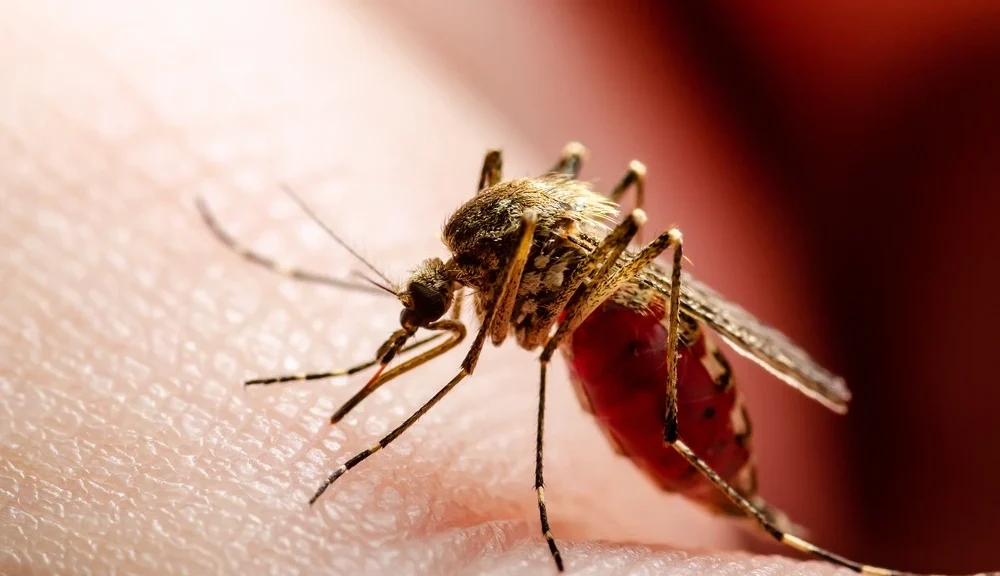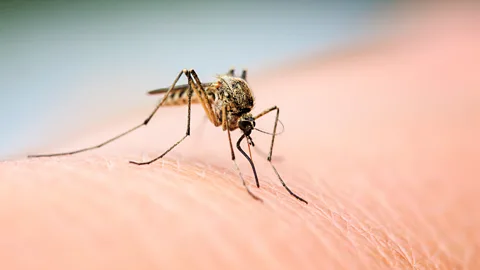Yes, mosquitoes will still bite a drunk person as alcohol does not repel mosquitoes. Despite alcohol consumption, mosquitoes are attracted to human body heat and carbon dioxide.
Additionally, they are drawn to certain scents emitted by the body, making anyone susceptible to mosquito bites regardless of their level of intoxication. Mosquitoes do not discriminate based on alcohol consumption and will still seek out a blood meal from any available host.
So, it’s important to take precautions against mosquito bites, especially in areas where mosquito-borne diseases are prevalent, even if you’ve had a drink or two.
Mosquito Behavior And Alcohol
Have you ever wondered if mosquitoes are more attracted to people who have had a few drinks? It turns out that there is some truth to this notion. Mosquito behavior can be influenced by various factors, including alcohol consumption. In this article, we will explore the relationship between mosquitoes and alcohol, diving into the attraction factors and blood meal preferences that make mosquitoes more likely to bite a drunk person.
Attraction Factors
When it comes to attracting mosquitoes, several factors play a role. One of these factors is the release of carbon dioxide (CO2) by our bodies. Mosquitoes are highly sensitive to CO2 and use it to locate potential hosts. Interestingly, studies have shown that alcohol consumption can increase the amount of CO2 released by our bodies, making us more attractive to mosquitoes.
In addition to CO2, mosquitoes are also attracted to certain odors emitted by our bodies. These odors can vary depending on factors such as genetics, diet, and even alcohol consumption. Research suggests that alcohol can alter the scent of our skin, making us more appealing to mosquitoes.
Blood Meal Preferences
When it comes to choosing their blood meal, mosquitoes can be quite selective. While they are known to feed on a variety of animals, including humans, their preferences can be influenced by different factors. One such factor is alcohol consumption.
A study published in the Journal of the American Mosquito Control Association found that alcohol ingestion stimulates mosquito attraction. The research suggests that people who have consumed alcohol may be at an increased risk of mosquito bites and exposure to mosquito-borne diseases.
It is important to note that mosquitoes are not attracted to the alcohol content in our blood. Instead, it is believed that the changes in body temperature, odor, and CO2 levels caused by alcohol consumption are the main drivers behind their increased attraction.
In Conclusion
While it may be tempting to blame your mosquito bites on that drink you had at the party, it is essential to understand that alcohol alone does not attract mosquitoes. Instead, it can affect certain factors that make us more appealing to these pesky insects. So, if you’re planning on spending time outdoors, especially during mosquito season, it might be wise to take precautions, such as using insect repellent and wearing protective clothing, regardless of your alcohol consumption.
Effects Of Alcohol On Human Blood
Alcohol consumption can increase a person’s attractiveness to mosquitoes due to the release of certain chemicals in the body. However, mosquitoes do not get drunk from biting a person who has consumed alcohol.
Blood Chemistry Changes
Alcohol consumption alters human blood chemistry, affecting how mosquitoes perceive and are attracted to individuals.
Alcohol As A Mosquito Lure
Studies suggest that alcohol ingestion increases attractiveness to mosquitoes, potentially leading to more mosquito bites.
Alcohol Consumption And Mosquito Bites
Have you ever wondered if mosquitoes are more likely to bite a person who has been drinking alcohol? Let’s explore the relationship between alcohol consumption and mosquito bites.
Increased Risk Post-drinking
Research suggests that individuals who have consumed alcohol may be at an increased risk of mosquito bites. Alcohol consumption can lead to a rise in body temperature and a distinct odor on the skin that attracts mosquitoes.
Beer Versus Other Alcoholic Beverages
Studies have shown that drinking beer can make individuals more prone to mosquito bites compared to other alcoholic beverages. The specific compounds found in beer may enhance a person’s attractiveness to mosquitoes, increasing the likelihood of being bitten.

Credit: www.bbc.com
Myths And Facts
Contrary to popular belief, mosquitoes are not attracted to drunk people. While alcohol consumption may make individuals more prone to mosquito bites due to increased body temperature and sweat production, mosquitoes are primarily attracted to the carbon dioxide and certain chemicals in our breath, not our level of intoxication.
So, it’s not the alcohol that attracts mosquitoes, but rather our natural body odors.
Mosquito Intoxication
There is a common myth that mosquitoes can become intoxicated if they bite a person who has consumed alcohol. However, this is not true. Mosquitoes do not get intoxicated from feeding on the blood of a drunk person. In fact, research has shown that mosquitoes do not feel the effects of alcohol in the same way that humans do. While fruit flies may get drunk, mosquitoes have a very high tolerance and do not experience intoxication from consuming blood containing alcohol.
Alcohol As A Repellent
Despite the myth that mosquitoes are repelled by alcohol, studies have shown that alcohol ingestion actually stimulates mosquito attraction. This means that individuals who have consumed alcohol may be at an increased risk of mosquito bites. Furthermore, using alcohol as a repellent by spraying it on the skin is not an effective method for repelling mosquitoes. In fact, it is recommended to avoid sugary alcoholic beverages, as they can attract more mosquitoes.
Scientific Studies On Mosquito Attraction
Scientific studies have shown that alcohol consumption can indeed make a person more attractive to mosquitoes. Research indicates that individuals who have consumed alcohol may be at a heightened risk of mosquito bites, potentially increasing their exposure to mosquito-borne diseases.
Research Findings
Scientific studies have delved into the intriguing question of whether mosquitoes are attracted to drunk individuals. While there is limited research specifically focusing on this topic, studies have explored the factors that influence mosquito behavior and attraction. Understanding these factors can provide insights into whether mosquitoes are more likely to bite a drunk person.Factors Affecting Mosquito Behavior
Several factors play a role in mosquito behavior and attraction. Here are some key factors that have been studied:- Chemical cues: Mosquitoes are highly sensitive to chemical cues emitted by humans, such as carbon dioxide, lactic acid, and certain compounds found in sweat. These cues help mosquitoes locate their hosts.
- Body temperature: Mosquitoes are attracted to warmer body temperatures. When a person consumes alcohol, it can cause blood vessels to dilate, resulting in increased skin temperature. This could potentially make them more attractive to mosquitoes.
- Odor: Certain compounds found in human sweat can vary depending on factors like diet, genetics, and health. These compounds can influence mosquito attraction, although the specific effects of alcohol consumption on sweat odor and mosquito behavior are not extensively studied.
- Movement and visual cues: Mosquitoes are also attracted to movement and visual cues. Alcohol consumption may affect a person’s motor skills and coordination, potentially making them more noticeable to mosquitoes.

Credit: mosquitojoe.com
Preventive Measures Against Bites
To prevent mosquito bites, avoid drinking alcohol as it can attract mosquitoes. Alcohol consumption stimulates mosquito attraction, increasing the risk of bites and potential exposure to mosquito-borne diseases. It’s best to stay sober to minimize the chances of getting bitten.
Safe Drinking Practices
When it comes to preventing mosquito bites, one of the easiest things you can do is to avoid drinking alcohol. As studies have shown, alcohol consumption stimulates mosquito attraction, making you more prone to bites. However, if you do decide to drink, it’s important to take some precautions.- Avoid drinking outside during peak mosquito hours, which are usually dawn and dusk.
- Wear long sleeves and pants to cover your skin as much as possible.
- Use a mosquito net over your bed to protect yourself while sleeping.
Effective Repellents
Using effective mosquito repellents is crucial to prevent bites, especially if you’re planning to drink alcohol. Here are some of the best mosquito repellents to use:| Repellent | Active Ingredient |
|---|---|
| DEET | N,N-Diethyl-meta-toluamide |
| Picaridin | 2-(2-hydroxyethyl)-1-piperidinecarboxylic acid 1-methylpropyl ester |
| IR3535 | 3-[N-Butyl-N-acetyl]-aminopropionic acid, ethyl ester |
| Oil of lemon eucalyptus | p-Menthane-3,8-diol |
Health Implications
When it comes to the health implications of mosquitoes biting a drunk person, it’s essential to understand the potential risks and consequences. Mosquitoes are known vectors for various diseases, and their interaction with a drunk individual can have significant implications for disease transmission.
Mosquito-borne Diseases
Mosquito-borne diseases are a serious concern in many parts of the world. These diseases include malaria, dengue fever, Zika virus, and West Nile virus, among others. When a mosquito bites a person, it can transmit these pathogens into the bloodstream, potentially leading to severe health issues.
Alcohol’s Role In Disease Transmission
Alcohol consumption can play a role in disease transmission through its effects on the human body. Studies have shown that alcohol ingestion can stimulate mosquito attraction, leading to an increased risk of mosquito bites. This heightened attraction could potentially elevate the individual’s risk of contracting mosquito-borne diseases.
Faqs And Curiosities
Curiously, mosquitoes are not affected by alcohol, so they won’t get drunk biting a tipsy person. Mosquitoes are attracted to the scent of carbon dioxide and body heat, not alcohol levels in the blood.
Common Questions
People often wonder if mosquitoes are attracted to drunk individuals. Let’s dive into some common questions surrounding this intriguing topic.
Intriguing Observations
Studies have shown that mosquitoes are indeed attracted to individuals who have consumed alcohol. The reasons behind this phenomenon are quite fascinating.
Research has revealed that alcohol consumption can stimulate mosquito attraction, leading to an increased risk of mosquito bites and potential exposure to mosquito-borne diseases.
This study highlights the importance of being cautious about alcohol consumption in environments where mosquitoes are prevalent.

Credit: www.bbc.com
Frequently Asked Questions
Does Being Drunk Affect Mosquitoes?
Being drunk does not affect mosquitoes. Mosquitoes are attracted to factors such as body heat, carbon dioxide, and certain chemicals found in the skin, rather than the state of intoxication.
Does Alcohol Stop Mosquito Bites?
While alcohol consumption may make a person more attractive to mosquitoes, it does not stop mosquito bites. Rubbing alcohol on a mosquito bite can have a soothing effect, but it does not prevent future bites. Mosquitoes are attracted to the carbon dioxide humans exhale, body heat, and certain chemicals present in sweat.
Are Bugs Attracted To Alcohol?
Yes, bugs, including mosquitoes, are attracted to alcohol due to the scent it emits.
Conclusion
Being drunk may make you more attractive to mosquitoes due to the increase in ethanol excreted through your skin. This can lead to more mosquito bites, but there’s no evidence to suggest that mosquitoes themselves get drunk from feeding on intoxicated individuals.
Stay cautious and use repellents.
Related posts:

I’m MD Tanvir, and I bring years of expertise gained from working closely with pest control companies to the forefront. My journey in the industry has inspired me to launch Bug Battler, a platform aimed at equipping people with the know-how to combat pests autonomously. Through Bug Battler, I aim to empower individuals with practical insights to tackle pest infestations effectively.

